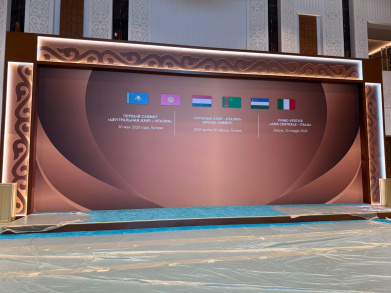Tehran discussed modernization and digitalization of customs activities of ECO countries
29.05.2025 | 12:40 |The 10th meeting of the Council of Heads of Customs Administrations of the member states of the Economic Cooperation Organization (ECO), which unites ten states, including all Central Asian countries, was held in the capital of Iran. The event, organized in a hybrid format under the chairmanship of Iran, became an important event for strengthening regional cooperation in the field of customs, trade and transport, NIAT Khovar reports.
During the meeting, the participants analyzed the work of the ECO committees and summed up the results of the 9th meeting of the Council, held on July 20, 2023 in Baku, Azerbaijan. Key issues in the industry were discussed, including the digitalization of customs processes, improvement of transit procedures, development of a regional electronic data exchange (EDE) system and strengthening interaction between the customs authorities of the member states. The ECO Secretariat presented a strategic document, “ECO Vision 2026-2035”, aimed at modernizing and digitalizing customs activities covering all ten member states.
Along with regional cooperation issues, much attention was paid to the need to expand cooperation with international organizations such as the World Customs Organization, the Japan International Cooperation Agency (JICA), and other partners, which will serve to strengthen the human resources of national customs services.
The meeting resulted in the unanimous adoption of the Tehran Declaration, which defines a strategic framework for developing regional trade, strengthening customs cooperation, and promoting digitalization of processes in the ECO region. The document will form the basis for modernizing customs practices and deepening economic integration.
The Economic Cooperation Organization is an intergovernmental regional organization established in 1985 by Iran, Pakistan, and Turkey to promote economic, technical, and cultural cooperation among member states. In 1992, the Organization expanded with the entry of 7 new members - Afghanistan, Azerbaijan, Kazakhstan, Kyrgyzstan, Tajikistan, Turkmenistan, and Uzbekistan.
ORIENT











